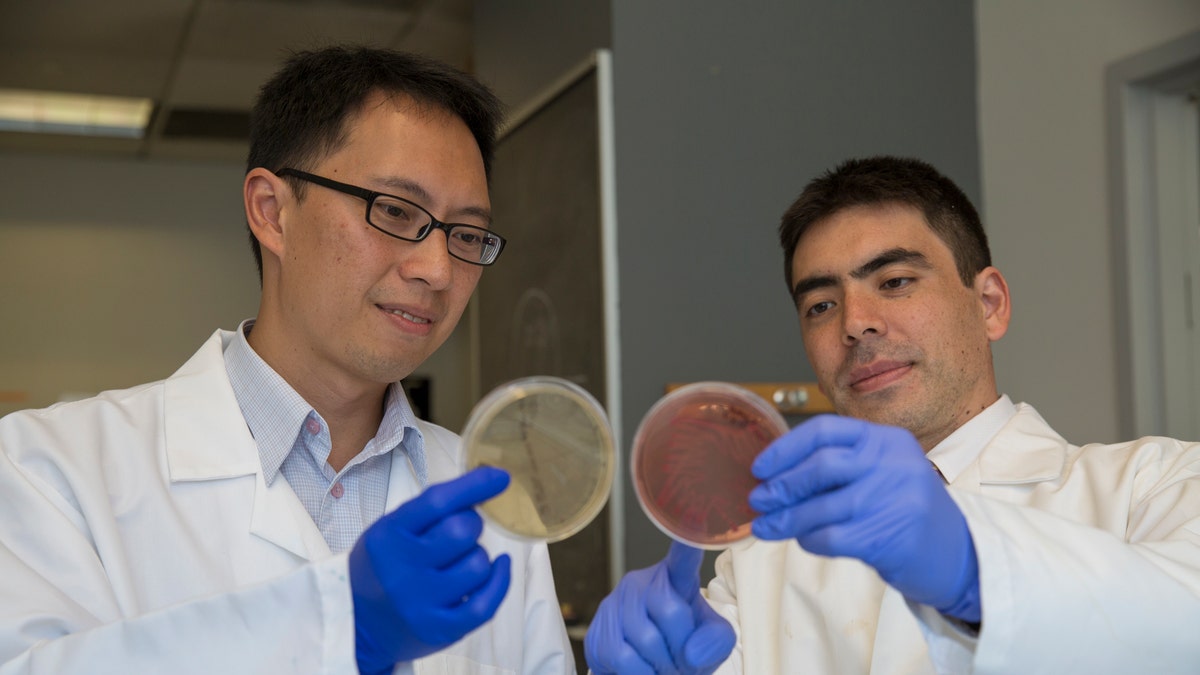
P’ng Loke, PhD (left), and Ken Cadwell, PhD, looking at bacterial plates in the Cadwell lab at the Skirball Institute of Biomolecular Medicine at NYU Langone. (Photo courtesy of NYU Langone Medical Center)
Too-clean living environments that harm gut bacteria can trigger inflammatory bowel disease (IBD), but researchers at New York University have found that gut worms may help restore intestinal health— offering promise for a cure of conditions like Crohn’s disease and ulcerative colitis, and potentially other autoimmune diseases.
In an animal study published Thursday in the journal Science, scientists at NYU Langone Medical Center observed that mice infected with these worms saw as much as a thousand-fold decrease in Bacteroides, a bacterial species linked with IBD. Study authors also found the number of Clostridia— a bacterial species that can help counter inflammation— increased tenfold, according to a news release. They theorized that the worms either set off an immune response in the mice to trigger growth of Clostridia, which then trumped the Bacteroides for nutrients, or that the immune response effectively released harmful toxins to the Bacteroides, effectively helping ward off IBD.
"Our findings are among the first to link parasites and bacteria to the origin of IBD,” study co-senior investigator and parasitologist P'ng Loke, PhD, an associate professor at NYU Langone, said in the release.
Authors’ findings support what’s being seen in rural parts of Malaysia, where there are high incidences of worm infections but low rates of IBD. When studied, people in this region had more Clostridia and fewer Bacteriodes in their microbiomes—the population of gut bacteria—compared with people in a nearby urban copulation. Those people treated and dewormed also had less Clostridia and more Bacteriodes.
"Our study could change how scientists and physicians think about treating IBD," study co-senior investigator and microbiologist Ken Cadwell, PhD, an assistant professor at NYU Langone and its Skirball Institute of Biomolecular Medicine, said in the release.
Loke said treating IBD with worms may help treat other autoimmune diseases like multiple sclerosis, rheumatoid arthritis and type 1 diabetes.
